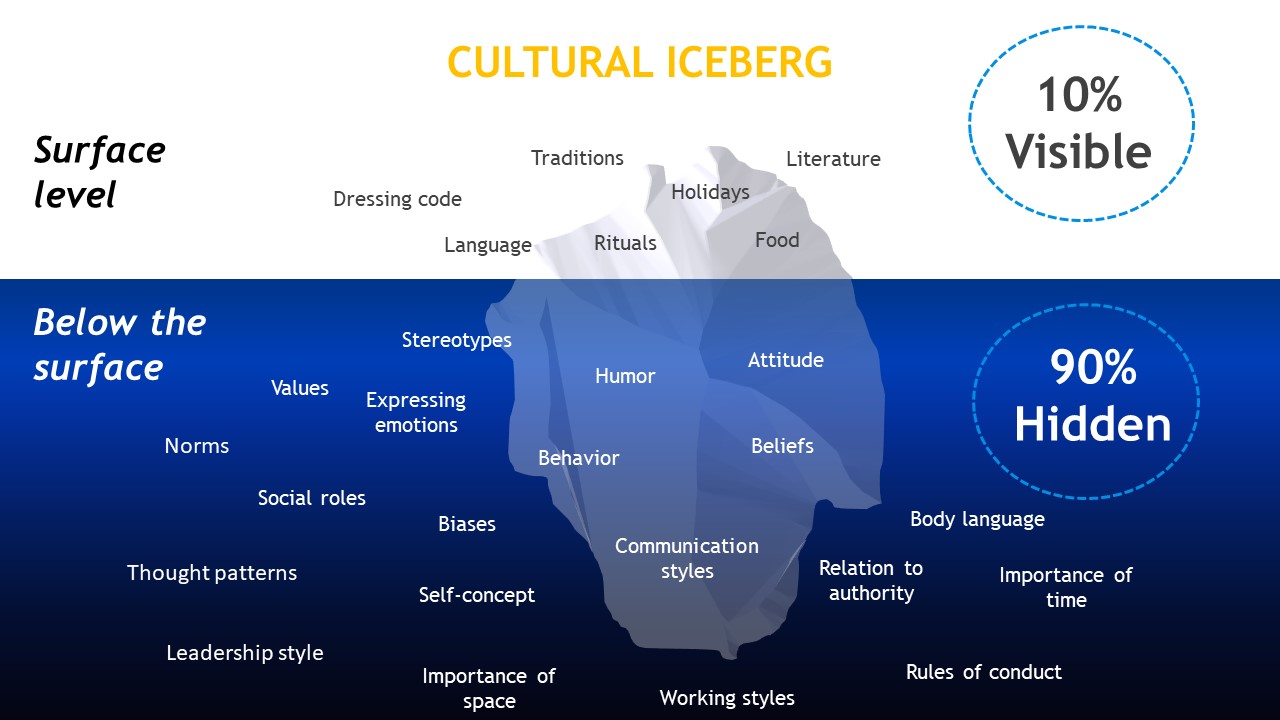Share
How to Develop CQ through Understanding Your Own Cultural Values?
What are the issues that bother you the most about other people's working styles, when you work in a multicultural environment? Do you think the language barrier is the biggest challenge? Or do you find it annoying when your colleague is late? Or maybe you find it hard to work with someone who is loud, and it feels like she is always unconsciously touching you when you are having a conversation?
Many people are still unaware of the key factors and biases of their own culture and some may even feel threatened or uneasy when communicating with people who are culturally different. When you understand what it is that makes you tick regarding different cultures, you are already one step ahead.
In addition, familiarizing yourself with the most common mistakes in intercultural communication, will help you to develop your CQ as well. You can learn the top 6 most common mistakes in cross-cultural communication in this blog post.
Hall stated already in 1976 that despite technological advancements, technical solutions cannot be applied to solving conflicts between human beings since the way we do things varies from culture to culture. In order to understand cross-cultural communication, one should live it, not read about it and reason it. Whenever we are interacting with other cultures and despite how well we are prepared, there are always elements of surprise
Cultural Iceberg Theory
Culture is more than we see and there are several elements under the tip of the iceberg that influence the culture significantly, yet which are not visible to the eye.
The cultural iceberg theory suggests that there are elements above the water that can be seen, and those elements are just the tip of the iceberg. Underneath the surface are more internal elements, which are often subconscious, yet they guide and dictate our behaviour.
Language, dressing code, traditions, customs and rituals are all elements that we can see when we are in contact with a new culture. Values, stereotypes, biases, beliefs, norms and unconscious feelings, for example, are something that cannot be touched or seen. These are elements that are below the surface of the iceberg.
Sometimes it is hard for us to explain our behaviour through culture because behaviour is experienced on an emotional level, not verbal, which highlights the difficulty to see and understand the elements below the surface.
Importance of understanding your own cultural roots
When you increase our own knowledge and tolerance regarding different cultures and our cultural roots, we decrease the number of misunderstandings and unconscious bias towards different ethnic groups. However, no matter how much you study a culture, you can never really make yourself fully prepared.
Even though, you would know in theory, for example how different the time orientation works, when you conduct a business with a Mexican, it may still come as a shock when you are actually living it. This is something that happened to me despite the fact I had been dating my Mexican boyfriend for years and had lived in several countries before.
When we truly emerged into the Mexican culture, I realized how none of our scheduled plans took place at the time when they were supposed to. We were always leaving too late, postponing the plans to the next day and when we had guests over, they showed up hours after the time of the invitation. As a punctual Finn, this caused me a lot of stress and a feeling of uncertainty.
One could even say it was a culture shock, even though I was fully aware in theory of this flexible time orientation. Therefore, in business environment, the more you can live a culture the better.
I believe, it definitely pays off to study the culture and use cultural dimensions scale to compare your own culture and the destination’s culture, but you should always stay curious and ready for surprises, and truly comprehend the hidden elements of a culture.
Tanja is a Certified Intercultural Communication Coach and Positive Psychology Practitioner. With a Master's Degree in Business Administration, specializing in Leadership and People Management, she helps companies and supports expats and multicultura team leaders in comprehending cultural dimensions and leveraging existing cultural differences to create powerful organizational strengths.
About the Author
Related Articles
Company
Good to know
Stay up to date on the latest news and expand your horizons!
©2024 Numinos Ltd | Intercultural Communication Training | Finland & Mexico


